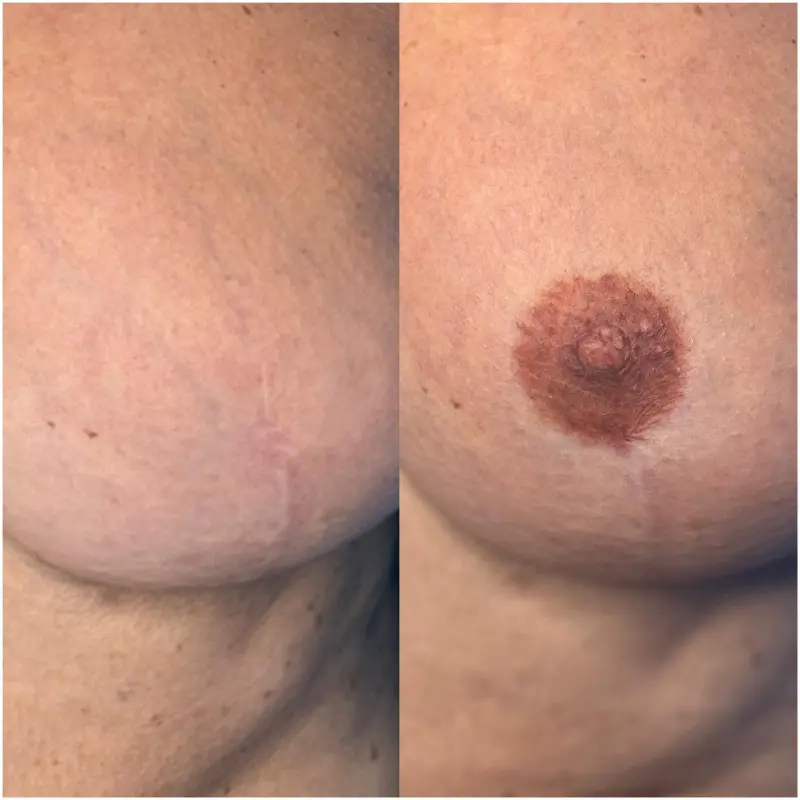- | Suite 3, 351 London Road, Hadleigh SS7 2BT
- | 01268 206408
- | BOOKING@GPHEALTHCAREALLIANCE.CO.UK
- | Mon - Fri 9:00 - 17:00 | Sat 9:00 - 17:00 | Sun - Closed
Introduction on how we provide medical tattooing help
Medical Micropigmentation (medical tattooing) is a procedure that uses custom chosen colour pigments that are applied to the skin.
This restores a natural colour that may have been lost due to trauma or surgery. It works well for areola and nipple restoration, skin discolorations, facial hair loss and scar camouflage.

This treatment is suitable for individuals looking to conceal scars, burns, or stretch marks, as well as those with some medical conditions such vitiligo. It is also beneficial for post-surgical patients, including those who have undergone mastectomy and wish to restore the appearance of the areola. A consultation with a trained practitioner is necessary to determine suitability.
The results of medical micropigmentation are long-lasting but not permanent. Depending on factors such as skin type, lifestyle, and sun exposure, the effects can last anywhere from 2 to 5 years before a touch-up may be required. The pigment will gradually fade over time, so periodic maintenance sessions are recommended to keep the desired look.
Most patients experience minimal discomfort during the medical tattooing procedure. The level of discomfort varies depending on the treatment area and individual pain tolerance, but most people describe it as a mild scratching or tingling sensation.
Medical micropigmentation or medical tattooing is generally safe when performed by a trained professional. However, some common side effects include temporary redness, swelling, and minor scabbing. In rare cases, allergic reactions or infections can occur, so it is essential to follow aftercare instructions and choose a reputable practitioner.
Information from the NHS website is licensed under the Open Government Licence v3.0.
Struggling with pigmentation damage? Contact us today for more information.